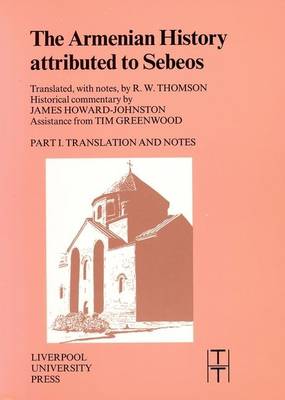
- Afhalen na 1 uur in een winkel met voorraad
- Gratis thuislevering in België vanaf € 30
- Ruim aanbod met 7 miljoen producten
- Afhalen na 1 uur in een winkel met voorraad
- Gratis thuislevering in België vanaf € 30
- Ruim aanbod met 7 miljoen producten
Zoeken
The Armenian History Attributed to Sebeos
€ 101,95
+ 203 punten
Omschrijving
The History attributed to Sebeos is one of the major works of early Armenian historiography. Although anonymous, it was written in the middle of the seventh century, a time when comparable chronicles in Greek and Syriac are sparse. Sebeos traces the fortunes of Armenia in the sixth and seventh centuries within the broader framework of the Byzantine-Sasanian conflict. Comprising two volumes, part 1 (240 pages) is the translation and notes followed by part 2 (216 pages) which contains the historical commentary, this excellent publication will be of interest to all those involved in the study of Armenia, the Caucasus, the Eastern Roman Empire and the Middle East in late antiquity. It will be of particular value to Islamicists, since Sebeos not only sets the scene for the coming of Islam, but provides the only substantial non-Muslim account of the initial period of expansion.
Specificaties
Betrokkenen
- Uitgeverij:
Inhoud
- Aantal bladzijden:
- 456
- Taal:
- Engels
- Reeks:
- Reeksnummer:
- nr. 31
Eigenschappen
- Productcode (EAN):
- 9780853235644
- Verschijningsdatum:
- 1/11/1999
- Uitvoering:
- Paperback
- Formaat:
- Trade paperback (VS)
- Afmetingen:
- 149 mm x 211 mm
- Gewicht:
- 308 g

Alleen bij Standaard Boekhandel
+ 203 punten op je klantenkaart van Standaard Boekhandel
Beoordelingen
We publiceren alleen reviews die voldoen aan de voorwaarden voor reviews. Bekijk onze voorwaarden voor reviews.










